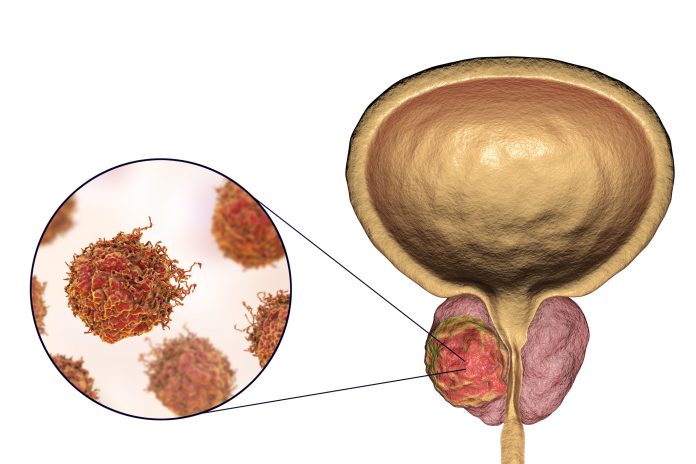
Men with prostate cancer have a distinct gut microbial profile to those with benign biopsies, which researchers say could partly explain the association between lifestyle factors and geographic differences in prostate cancer incidence.
The findings were presented at the European Association of Urology (EAU) Annual Meeting in Amsterdam by Peter Boström, chief of the Department of Urology at Turku University Hospital in Finland.
Boström told Inside Precision Medicine that although it is well known that prostate cancer risk varies globally with incidence much higher in Western countries, and that lifestyle factors such as physical activity and diet affect an individual’s prostate cancer risk. “We know little about the mechanisms [behind] the increased/decreased risks associated with environmental and lifestyle factors.”
“As gut microbiota characteristics has recently been reported to be associated with many medical conditions, and gut microbiota characteristics is affected by environmental and lifestyle factors, we wanted to investigate if the microbiota composition could associate with prostate cancer risk,” he said.
Boström and colleagues therefore carried out the prospective Multi-IMPROD Study, which included 181 men with suspected prostate who were undergoing ultrasound-guided biopsies and MRI scans for diagnosis.
Rectal swab samples, collected at the time of biopsy, were analyzed by RNA gene sequencing and the gut bacteria present were determined.
Overall, 60% of the men were diagnosed with prostate cancer, and other than having a lower rate of smoking, there were no significant differences in lifestyle factors between them and the men without prostate cancer.
There was, however, a significant difference in the gut microbial profiles between the two groups. Men with prostate cancer had increased levels of Prevotella 9, members of family Erysipelotrichaceae, and potentially pathogenic Escherichia–Shigella as well as decreased levels of Jonquetella, Moryella, Anaeroglobus, Corynebacterium, and CAG-352 relative to those without prostate cancer.
In addition, bioinformatics analyses predicted that the individuals with prostate cancer may have increased 5-α-reductase (5-AR) activity, copper absorption, and retinol metabolism as a result of the differences in their microbiota.
Of note, 5-AR is an enzyme involved in steroid hormone metabolism, and the researchers found that plasma testosterone levels were lower in the men with high predicted microbial 5-AR activity. Moreover, in a subgroup of 17 men taking 5-AR inhibitors, plasma estrone and estradiol levels were higher in the men with predicted increased microbial 5-AR function.
The investigators say that differences in steroid hormone metabolism could be “a potential mechanistic explanation” that links the unfavorable gut microbial profile to people with prostate cancer.
“Of course, we are still in the early days and need more research before definitive conclusion, but after validation and refinement of the unfavorable/favorable gut microbiota composition, microbiota analysis could be included in prostate cancer risk prediction models when individuals want to estimate their risk,” Boström remarked.
He added that the gut microbiota makes a “very interesting prevention target” because it can be altered using both non-specific (diet) and specific (pre/probiotics, antibiotics) approaches.
In a statement to the press, Lars Dyrskjøt Andersen, professor of Molecular Medicine at Aarhus University and member of the EAU22 Scientific Congress Committee of Urology said: “This is a striking finding from a large well conducted trial. We should be careful with observed associations when it comes to complicated epidemiology, and no cause-and-effect measures can be determined based on this, but certainly the gut microbiota could be an important area to investigate further to enhance our understanding of prostate cancer risk.”













